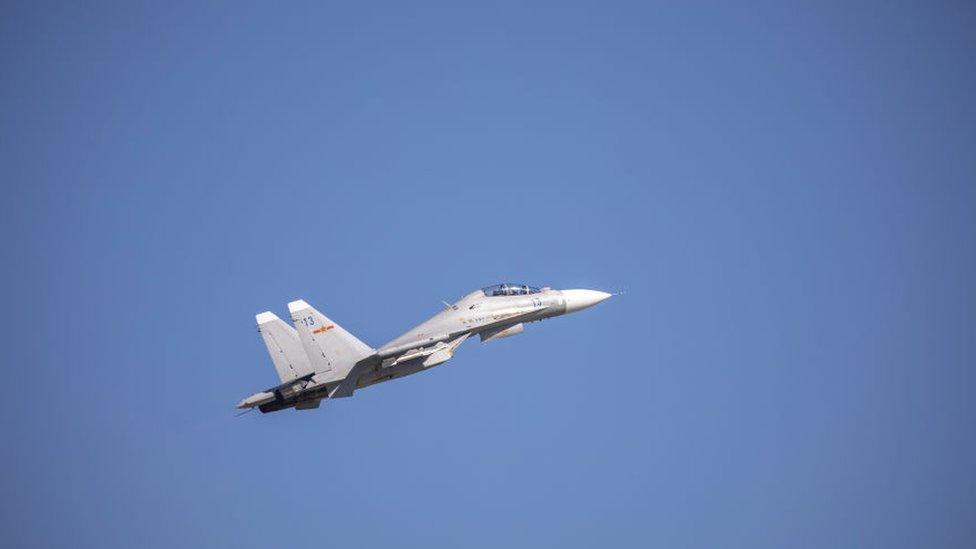Top Gun: Maverick betrays Hollywood's weakness in China
- Published
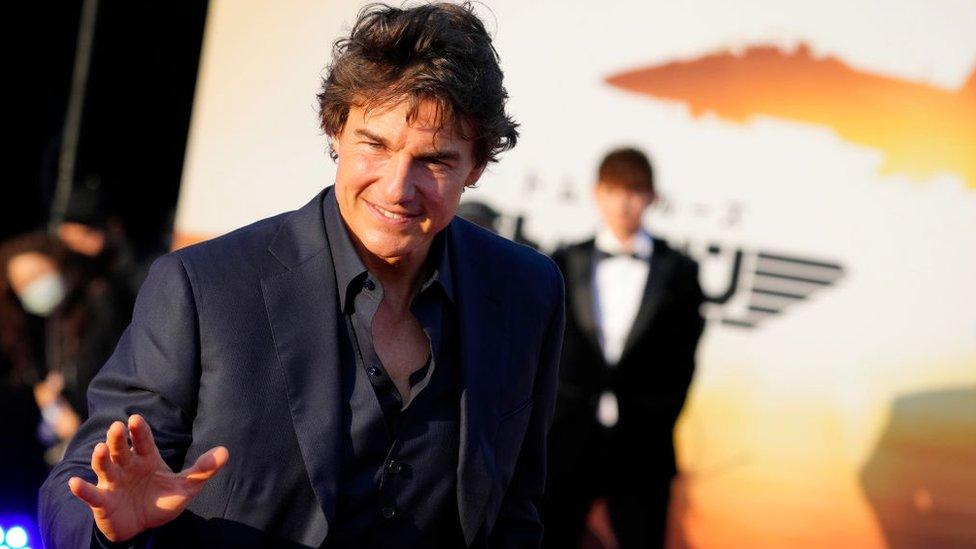
Tom Cruise at the Japan premier of Top Gun: Maverick on 24 May
Some are cheering the release of Top Gun: Maverick - an action thriller - for supposedly "standing up to China". That misses the point, writes Isaac Stone Fish.
Thirty-six years after flying high in the 1980s original, Top Gun: Maverick, a sequel to the adventure-thriller film in which Tom Cruise and Val Kilmer fight baddies for the US Navy, is breaking box office records in America.
Besides spectacular dogfights with fighter jets, it is getting praise for another reason. When a trailer for the film was released in 2019, Taiwanese and Japanese flags were removed from Cruise's bomber jacket - appeasing Beijing (which claims Taiwan and disapproves of Japan) but upsetting Americans.
But when Paramount released the film late last month, it had reinstated the flags. Americans and Taiwanese cheered. Some critics claimed this was evidence Hollywood was finally standing up to China.
Not so fast.
For a film that is supposed to be about US military might, it neither mentions nor even implies the presence of China in the film - a notable omission given what US military brass routinely describe as America's top security challenge.
There are routine public warnings of the threat Beijing poses to national security. "China is the strategic threat to this country," US Chief of Naval Operations Admiral Michael Gilday has said.
"China increasingly is... challenging the United States in multiple arenas - especially economically, militarily and technologically - and is pushing to change global norms," said last year's annual US government threat report.
That, in the world of Top Gun, China doesn't even exist is an example of how subtly Beijing exercises influence in Hollywood.
The film is not playing in China - but that's not really what it's about.
There's no need to ban a film when, as Top Gun: Maverick shows, a studio will censor itself when it comes to how it portrays - or won't portray - Beijing.
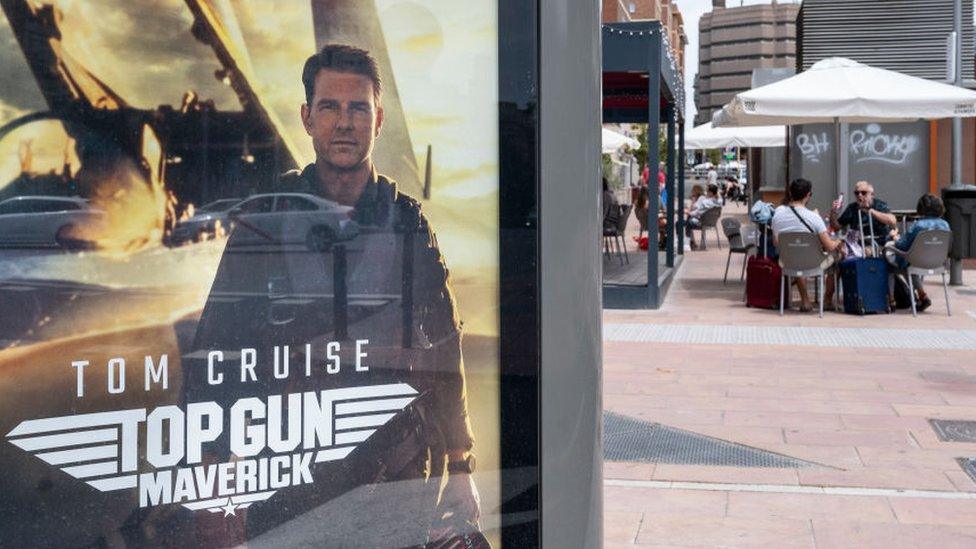
A poster for Top Gun: Maverick in Spain on 27 May
Yet surprisingly, there are no clear rules over how, why, and when Beijing responds.
Take, for example, the 2011 comedy, Johnny English Reborn, distributed by United Pictures.
In the film the actor Rowan Atkinson played one of his famous characters, the eponymous bumbling British spy.
It opens in a monastery in Tibet - sensitive to Beijing, because it wants only carefully controlled portrayals of that Himalayan region - and only gets more controversial from there. English must prevent international criminals from murdering the Chinese premier, who is portrayed as cowardly and foolish.
Admittedly, such a film is less likely to pass muster in the age of Xi Jinping. But what happened to Atkinson and the studio for the film?
Apparently very little: I've seen no indication that Beijing punished Universal for the portrayal, and Atkinson remains incredibly popular in China: On dozens of flights I've taken in China, both before and after 2011, the most common face I remember seeing on Chinese airline televisions - even more than Chinese Chairmen Xi, Hu Jintao, or Mao Zedong - is Mr Bean's.
The lesson from this, and from hundreds of other films that address (or don't address) China is that sometimes Beijing metes out its tolerance or punishment of a studio or actor with no apparent logic - and that is part of the strategy to keep Hollywood on its toes. The capriciousness gives China power.
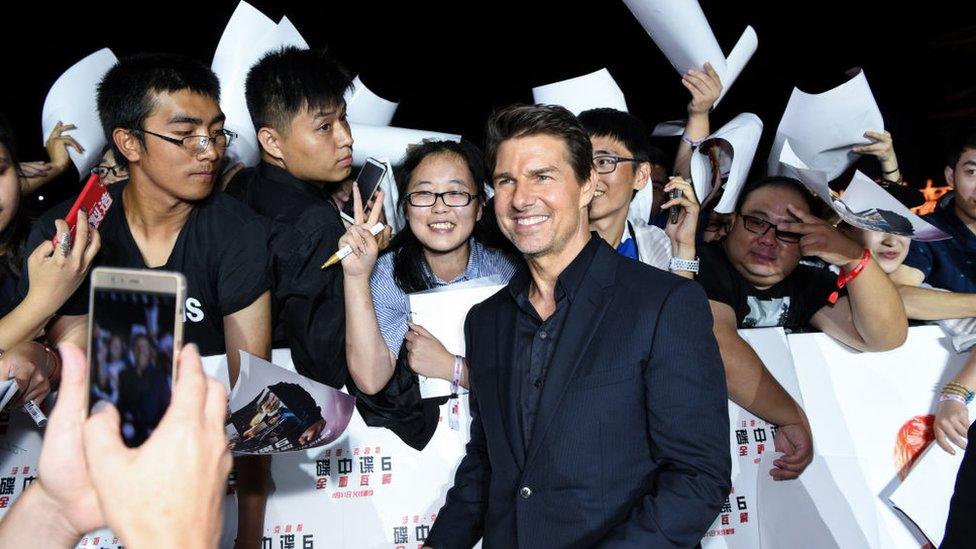
Tom Cruise with fans in China in 2018.
Sometimes films that contain elements critical of China screen throughout the country, and other times, they don't.
Sometimes those who criticise Beijing, like actors Sharon Stone and Richard Gere, who offended the party through their activism on Tibet, find their careers damaged. While some, like actor Christian Bale - who backed a Chinese activist - or director Judd Apatow - who made comments about Uighurs - have faced no apparent reprisal.
Consistent with Chinese Communist Party techniques for exercising power, this is a feature, not a bug. It means studios are always left wondering.
Filmgoers have become inured to Chinese censorship - which is perhaps why a flag patch is misread as being "tough to China".
But if American admirals can speak directly about China, Hollywood's reliance on mumbled and muted flag symbols for its most patriotic of pictures looks strikingly weak by comparison.
Isaac Stone Fish is the author of America Second: How America's Elites Are Making China Stronger, from Penguin Random House
WATCH: Royals attend Top Gun sequel premiere
Related topics
- Published6 August 2020
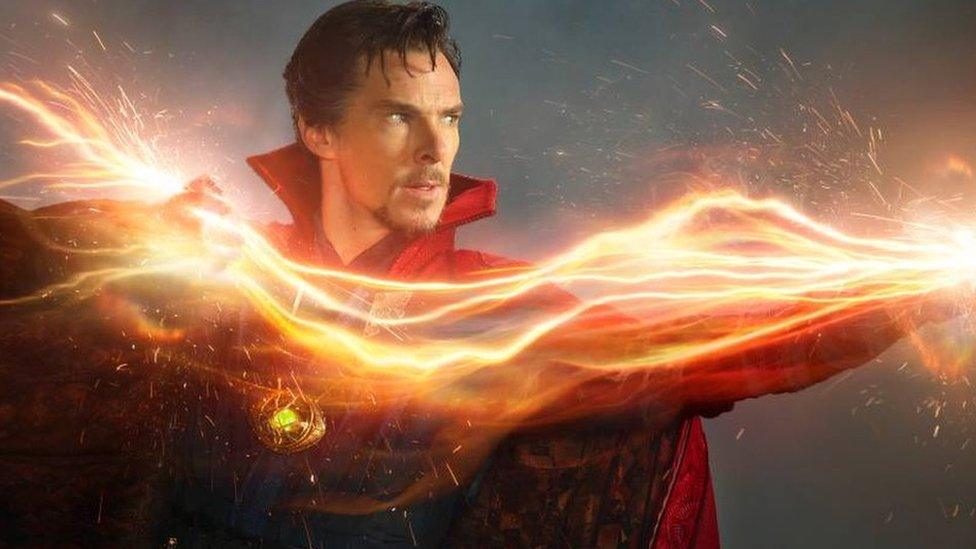
- Published30 May 2022

- Published31 May 2022
